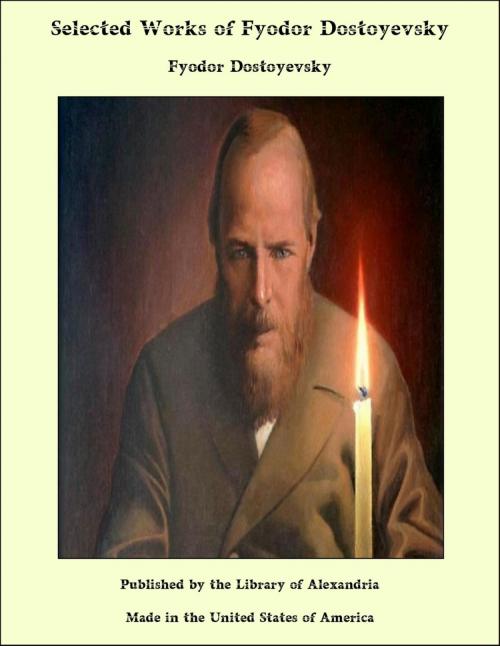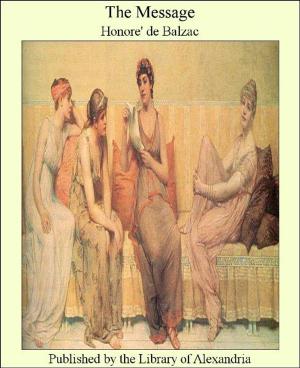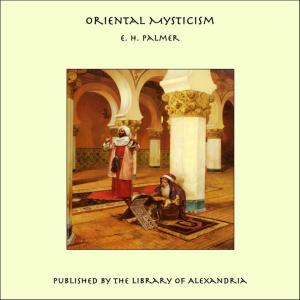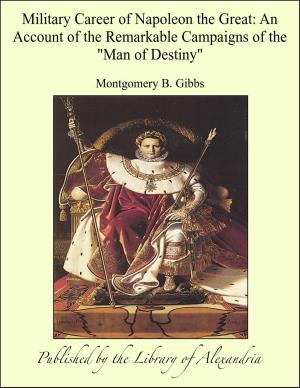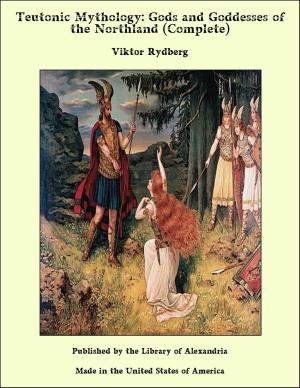Selected Works of Fyodor Dostoyevsky
Nonfiction, Religion & Spirituality, New Age, History, Fiction & Literature| Author: | Fyodor Dostoyevsky | ISBN: | 9781465612687 |
| Publisher: | Library of Alexandria | Publication: | March 8, 2015 |
| Imprint: | Language: | English |
| Author: | Fyodor Dostoyevsky |
| ISBN: | 9781465612687 |
| Publisher: | Library of Alexandria |
| Publication: | March 8, 2015 |
| Imprint: | |
| Language: | English |
But reading all these professions de foi is a bore, I think, and so I’ll tell you a story; actually, it’s not even a story, but only a reminiscence of something that happened long ago and that, for some reason, I would very much like to recount here and now, as a conclusion to our treatise on the People. At the time I was only nine years old…. But no, I’d best begin with the time I was twenty-nine. It was the second day of Easter Week. The air was warm, the sky was blue, the sun was high, warm, and bright, but there was only gloom in my heart. I was wandering behind the prison bar- racks, examining and counting off the pales in the sturdy prison stockade, but I had lost even the desire to count, although such was my habit. It was the second day of “marking the holiday” within the prison compound; the prisoners were not taken out to work; many were drunk; there were shouts of abuse, and quarrels were constantly breaking out in all corners. Disgraceful, hideous songs; card games in little nooks under the bunks; a few convicts, already beaten half to death by sentence of their comrades for their particular rowdiness, lay on bunks covered with sheepskin coats until such time as they might come to their senses; knives had already been drawn a few times—all this, in two days of holiday, had worn me out to the point of illness. Indeed, I never could endure the drunken carousals of peasants without being disgusted, and here, in this place, particularly. During these days even the prison staff did not look in; they made no searches, nor did they check for alcohol, for they realised that once a year they had to allow even these outcasts to have a spree; otherwise it might be even worse. At last, anger welled up in my heart. I ran across the Pole M-cki, a political prisoner; he gave me a gloomy look, his eyes glittering and his lips trembling: “Je hais ces brigands!” he muttered, gritting his teeth, and passed me by. I returned to the barrack despite the fact that a quarter-hour before I had fled half-demented when six healthy peasants had thrown themselves as one man, on the drunken Tatar Gazin and had begun beating him to make him settle down; they beat him senselessly with such blows as might have killed a camel; but they knew that it was not easy to kill this Hercules and so they didn’t hold back.
But reading all these professions de foi is a bore, I think, and so I’ll tell you a story; actually, it’s not even a story, but only a reminiscence of something that happened long ago and that, for some reason, I would very much like to recount here and now, as a conclusion to our treatise on the People. At the time I was only nine years old…. But no, I’d best begin with the time I was twenty-nine. It was the second day of Easter Week. The air was warm, the sky was blue, the sun was high, warm, and bright, but there was only gloom in my heart. I was wandering behind the prison bar- racks, examining and counting off the pales in the sturdy prison stockade, but I had lost even the desire to count, although such was my habit. It was the second day of “marking the holiday” within the prison compound; the prisoners were not taken out to work; many were drunk; there were shouts of abuse, and quarrels were constantly breaking out in all corners. Disgraceful, hideous songs; card games in little nooks under the bunks; a few convicts, already beaten half to death by sentence of their comrades for their particular rowdiness, lay on bunks covered with sheepskin coats until such time as they might come to their senses; knives had already been drawn a few times—all this, in two days of holiday, had worn me out to the point of illness. Indeed, I never could endure the drunken carousals of peasants without being disgusted, and here, in this place, particularly. During these days even the prison staff did not look in; they made no searches, nor did they check for alcohol, for they realised that once a year they had to allow even these outcasts to have a spree; otherwise it might be even worse. At last, anger welled up in my heart. I ran across the Pole M-cki, a political prisoner; he gave me a gloomy look, his eyes glittering and his lips trembling: “Je hais ces brigands!” he muttered, gritting his teeth, and passed me by. I returned to the barrack despite the fact that a quarter-hour before I had fled half-demented when six healthy peasants had thrown themselves as one man, on the drunken Tatar Gazin and had begun beating him to make him settle down; they beat him senselessly with such blows as might have killed a camel; but they knew that it was not easy to kill this Hercules and so they didn’t hold back.
